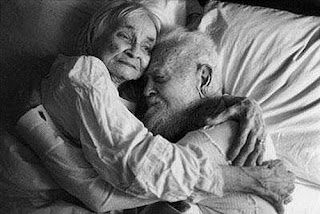The New Friars

Another book I've been reading - but this one chewing it off in little pieces because the content is so personally challenging. Scott Bessenecker writes in The New Friars: The Emerging Movement Serving the World’s Poor (Downers Grove IL: IVP) not only about the grass roots modern movement, one that is not orchestrated by the institutional church , but reflects back on the examples of those saints from the monastic tradition - Franciss and Clare of Assisi, Patrick and Brigid or Ireland, the Moravians, etc. In the "Incarnational" chapter, the motivating force is the pursuit of Jesus' example in which he descended into humanity - to BE the Gospel!
“But incarnation is not easy. For Faye, the glamour of a life of service among the poor, if there is such a thing, was short-lived. Her early journals betray a period of testing and complaining. Being constantly dirty, having legs peppered with bug bites, the heat, the difficulty of life without modern conveniences-all of this wears on a person, living in a context where cruelty perpetrated against children is continually uncovered means depression is close at hand. And at twenty-eight, Faye worries about being single. Living among and serving the poor sometimes feels like a curse to a single woman. “It sucks,” she writes. “l have chosen a life that is radical (but not really radical if you look at the saints throughout church history) – that freaks out many of the men I come across. I overwhelm them.”
But living incarnationally also gives perspective, helping us to see others, God and ourselves in new ways. Faye shares, “The probability of meeting a guy who will have the same passion for transformation, will not be over-whelmed by who I am and will choose to journey with me down this path is not high, but then we worship a God who is outside of probability, I do trust that God wants to give me the best and a full, beautiful life, and if that means singleness (which I and my extended family are praying it is not), I want what he has chosen for me and not what I think is best.” Choosing a life among an oppressed community brings with it a kind of purifying power. “My selfishness and things that make me ugly are brought out to the surface,” Faye says, “and God is making me into a more beautiful person.”
Incarnating the gospel in difficult places does not just benefit the needy. When Jesus sent his disciples out with “no staff, nor bag, nor breads nor money—not even an extra tunic” (Luke 9:3), it was also to their profit. They were weaned from their addiction to self-protection and comfort, and they learned to live trusting a God who could multiply loaves. Someone could even argue that the disciples were the mission field that Jesus was focused on when he sent them out penniless.” (See p. 76f)



Comments
Post a Comment